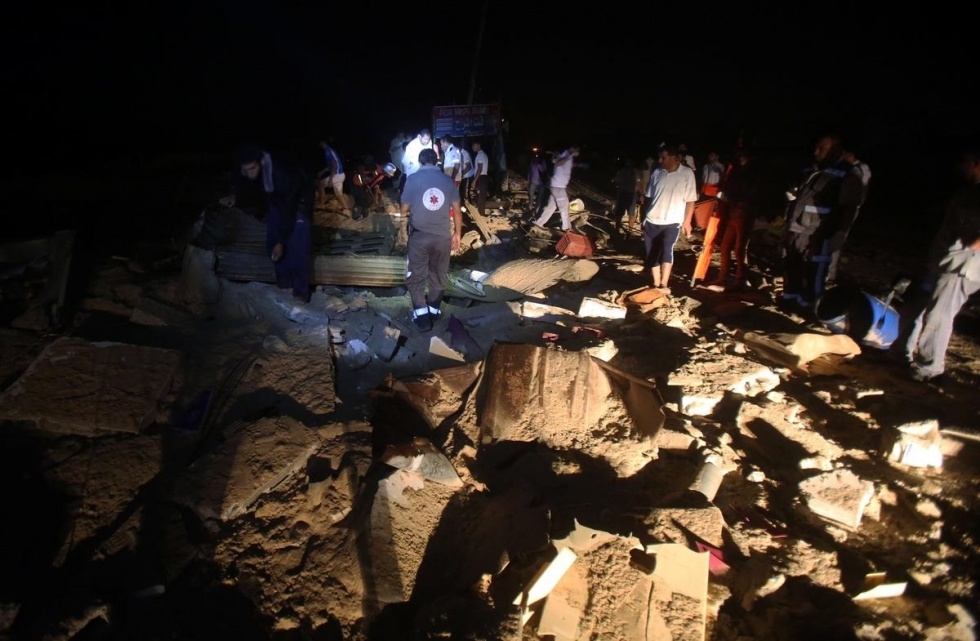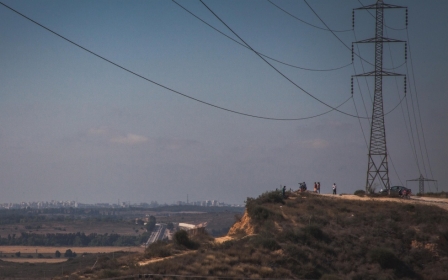20 Palestinians killed overnight as UN holds emergency talks

At least 20 Palestinians were killed in overnight raids on the Gaza Strip, as Operation Protective Edge entered its third day.
This includes four women and four children, local medical sources said. The total death toll is now believed to be at least 75, according to the Gaza Health Ministry. The bloodiest strikes have hit Khan Yunis in southern Gaza, Nusseirat refugee camp in the centre of the strip, and Gaza City to the north.
The escalation in violence, has left Gaza on "a knife edge" according to United Nations Secretary General Ban Ki-moon.
"I am alarmed by the new wave of violence that has engulfed Gaza, southern Israel and the West Bank - including East Jerusalem,” said Ban. “This is one of the most critical tests the region has faced in recent years."
The UN Security Council is now scheduled to hold an emergency session on the crisis on Thursday afternoon, although the international response has been mixed, with few international players have as yet calling for an outright ceasefire.
New MEE newsletter: Jerusalem Dispatch
Sign up to get the latest insights and analysis on Israel-Palestine, alongside Turkey Unpacked and other MEE newsletters
The conflict escalates
The Israeli aerial bombardment carried on throughout the night, with military sources announcing early on Thursday that the Israeli army had launched more than 320 strikes in the last 24 hours, almost doubling the number of missiles launched in the same 24 hour period the day before.
According to sources quoted in the Jerusalem Post newspaper, Gaza has been hit with 750 rockets - the equivalent to 800 tons of explosives - since military operations officially began early on Monday, Gaza has been hit with 750 rockets, which is the equivalent to 800 tons of explosives.
"We aimed at 322 targets in Gaza overnight, taking to 750 the total number of Hamas targets hit by the army since the start (on Tuesday) of Operation Protective Edge," Lieutenant Colonel Peter Lerner told journalists in a telephone conference.
Hamas has also sent a barrage of rockets toward Israel, with at least one long-range rocket intercepted over Tel Aviv in the early hours of Thursday.
Hamas’ armed wing Ezzedine al-Qassam Brigades said that they had launched two Gaza-made M75 rockets toward northern Israel. An Israeli army spokesperson initially confirmed this but then revised the number down to one, according to AFP.
Rockets also continued to penetrate southern Israel, where they caused minor damage and sparked several small fires, with warning sirens going off periodically throughout the morning.
However, the Iron Dome system, which is designed to intercept rockets entering Israel, has proved extremely effective, neutralising 90 percent of all rockets fired from Gaza, Haaretz newspaper reported.
The fighting is now the worst since Operation Cast Lead in 2008 – 2009 when 1,166 Palestinians, mostly civilians, and 13 Israelis, mostly military, were killed.
Tensions have been high ever since three settler teenagers were abducted in the West Bank on 12 June and later found dead outside Herbon on 30 June. They reached boiling point a day later when a Palestinian teenager was apparently abducted and burnt alive by Israeli settlers near East Jerusalem.
The incident sparked mass protests in Arab towns and neighbourhood throughout Israel, while Israeli security services continued to crackdown on the West Bank. Since the teenage settlers first went missing, some 600 Palestinians have been arrested, thousands of homes have been raided and several Palestinians killed.
Israeli Prime Minister Benjamin Netanyahu immediately blamed Hamas for the killing of the three Israeli teens, and said he held Palestinian President Mahmoud Abbas responsible.
No one has as yet claimed responsibility for the killing. A group of ultra-nationalist Israeli settlers have been arrested for the murder of the Palestinian teen Mohamed Abu Khdeir although three of them have since been released.
Middle East Eye delivers independent and unrivalled coverage and analysis of the Middle East, North Africa and beyond. To learn more about republishing this content and the associated fees, please fill out this form. More about MEE can be found here.


